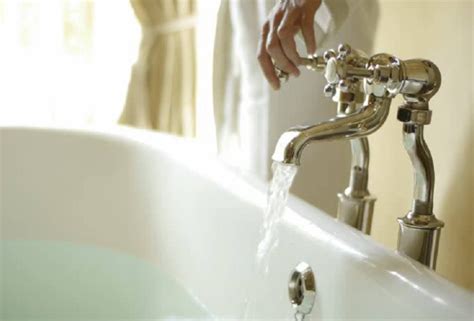Quick Fix for Hot Water Problems!
Dealing with a sudden lack of hot water is incredibly frustrating. Whether it's a chilly shower or the inability to wash dishes, a hot water issue demands immediate attention. This guide provides quick fixes for common hot water problems, helping you get back to your routine swiftly and efficiently. We'll cover troubleshooting steps you can take yourself before calling a plumber, saving you time and potentially money.
Why is My Hot Water Heater Not Working?
This is the most common question when facing a hot water crisis. The problem isn't always the water heater itself; it could stem from several other issues. Let's explore some of the most frequent culprits:
Is the Gas Supply On (for Gas Water Heaters)?
This might seem obvious, but a simple check of the gas valve is often overlooked. Ensure the valve leading to your water heater is fully open. If you're unsure, consult your water heater's manual or a qualified professional. A pilot light that's gone out is another common problem with gas water heaters. Check your manual for instructions on relighting it safely. Never attempt this if you're unsure; call a professional.
Is the Circuit Breaker Tripped (for Electric Water Heaters)?
Electric water heaters rely on electricity, and a tripped circuit breaker can cut off the power supply. Check your electrical panel for a tripped breaker (it will be in the "off" position). If you find one, switch it back to the "on" position. If it immediately trips again, there's likely a more significant electrical problem that needs a professional's attention.
Is the Thermostat Set Correctly?
Your water heater has a thermostat that controls the water temperature. Ensure it's set to your desired temperature. A low setting will result in lukewarm or cold water. Many modern water heaters also have a digital display showing the current water temperature and any error codes. Refer to your user manual to understand these codes.
Low Water Level (for Tank Water Heaters)?
Tank water heaters require a certain water level to operate correctly. Check the water level through the sight glass (a small glass tube on the side of the tank). If the water level is low, you might have a leak somewhere in the system. A low water level can also be due to a failing pressure relief valve, potentially a serious issue that requires professional attention.
What if the Problem Persists?
If you've checked these basics and still have no hot water, the problem could be more complex. Some issues require the expertise of a qualified plumber:
Sediment Buildup in the Tank (Tank Water Heaters):
Over time, sediment can accumulate at the bottom of your tank water heater, reducing its efficiency and potentially causing overheating or failure. While flushing the tank is a potential DIY fix, it's messy and can be challenging. For best results, consider professional assistance for this task.
Faulty Heating Element (Electric Water Heaters):
A malfunctioning heating element is a common cause of hot water problems in electric water heaters. Replacing this component is usually a job best left to a professional plumber or electrician.
Gas Burner Issues (Gas Water Heaters):
Problems with the gas burner, such as a clogged burner or a faulty igniter, often require professional attention due to safety concerns associated with gas appliances.
Leaking Water Heater:
A leaking water heater is a serious issue that requires immediate attention from a professional plumber to prevent further damage and potential safety hazards.
Preventing Future Hot Water Problems
Regular maintenance can significantly reduce the chances of hot water emergencies. Consider these preventative measures:
- Annual Inspection: Have your water heater inspected annually by a qualified professional.
- Flush the Tank (Tank Water Heaters): Regularly flushing the tank helps remove sediment buildup, improving efficiency and lifespan.
- Check the Pressure Relief Valve: Ensure the pressure relief valve is functioning correctly to prevent excessive pressure buildup.
- Inspect for Leaks: Regularly check your water heater and plumbing for any signs of leaks.
By following these tips, you can quickly troubleshoot many common hot water problems and potentially avoid costly repairs. Remember, safety is paramount. If you are unsure about any repair, always contact a qualified professional plumber.

